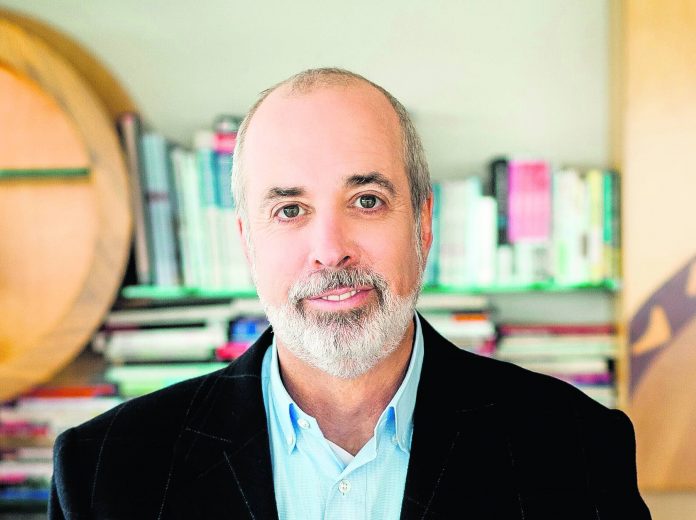
Ric Edelman, founder of financial-advisory firm Edelman Financial Engines, has helped clients navigate several downturns over the decades, and in some ways this one is just like any other.
But this crisis is increasing the urgency for some discussions that weren’t as big priorities in past bear markets, he said in a recent conversation with The Associated Press. His firm’s clients have over $200 billion in assets under its management.
The conversation has been edited for clarity and brevity.
Q: Have your clients been more scared about this downturn than others?
A: From a financial perspective, this downturn is like other downturns, and our clients have been through many of them. They know that in the long run, markets recover and ultimately reach new highs and therefore require three things: a diversified portfolio, a long-term time horizon and the fortitude and emotional capacity to hang in there when it gets very dark.
With those three in mind, clients realize that this too shall pass. There was much greater fear in ’87 and after 9/11 and the dot-com bubble than there is today. They went through them, and they got through it OK.
Q: So your advice is the same as in past crises?
A: There is another element to this crisis that the others did not have, which is the health care element. That is causing a level of concern that would not exist if this was merely a “financial crisis.”
Q: If we can wait before discussing health care, it sounds like your clients weren’t panic selling when stocks were tanking?
A: Our clients were generally not reacting with panic because they were properly positioned going into this crisis, and they had the education and knowledge of knowing why they were invested the way they were. That served them very well in the early days of this crisis.
But as the crisis has continued, and we are now recognizing that this crisis is going to last a couple years, not a couple months, it is increasing the levels of conversation with our clients who want to confirm they are indeed able to hang in there for as long as this lasts.
Q: What does that mean?
A: It means confirming they do indeed have two years of spending in cash reserves. If they don’t, then we need to raise their cash. We also need to evaluate the safety and stability of their job. If there is a risk that they will suffer an income loss, then we need to reevaluate their portfolios’ ability to replace that income.
Q: On the health side, the pandemic means you’re talking much more about wills, do-not-resuscitate orders and such?
A: We have been providing substantial amounts of advice about end-of-life planning, which is really estate planning. We’ve been talking about revising wills and trusts, updating beneficiaries, obtaining powers of attorney and medical directives to make sure their wishes are in fact carried out, because we’re discovering this virus is killing people indiscriminately.
Q: Do you find resistance from clients in talking about their own mortality?
A: We’ve always engaged in estate planning with our clients. I would say that COVID-19 is creating a new urgency.
There’s also a related conversation: It’s easy for an affluent individual who has plenty of money to be relatively cavalier. What we are reminding our clients, who tend to be well-off, is that their adult children in their 20s, 30s and 40s may not be as financially well-off.
They may be experiencing their own job loss, their own health crises, marital issues, drug and alcohol dependencies. They’re also dealing with their own aging parents, who may be in more precarious financial situations, and their siblings.
We tend to focus on our own household and don’t realize until we get the phone call that they need help.
Q: Do you have blanket advice for that? People should give only loans, or only gifts?
A: That is the first choice: Is it a loan or a gift? For gift purposes, the IRS has limitations, but for practical issues, they don’t really exist. Don’t worry about the gift tax.
The bigger issue is that you probably think that you’re lending money to your brother-in-law, and he probably thinks you’re making him a gift. So you really have to have open communication as to what’s expected.
Q: Any other considerations people may not consider until too late?
A: If you do lend money to child No. 1, will children 2, 3 and 4 be upset they didn’t get financial support? And what happens if you generously support child 1, and you get a request from child 2 and you don’t have the ability to do so?
Q: What have you been seeing from your younger clients?
A: Younger people are really confident in their future. Their attitude is: I have decades to wait this out, and they are investing far more aggressively, believing this is a huge opportunity as 2008 was. If they’re making a mistake, they’re being too aggressive rather than too conservative.
Q: What about someone who isn’t fortunate enough to have money to invest, who has no money coming in?
A: If you are in financial jeopardy right now and lost your income and are struggling to pay your bills, the only bills you should be paying right now are for food and medicine. Forget about car payments, student-loan payments. All that can wait.



















